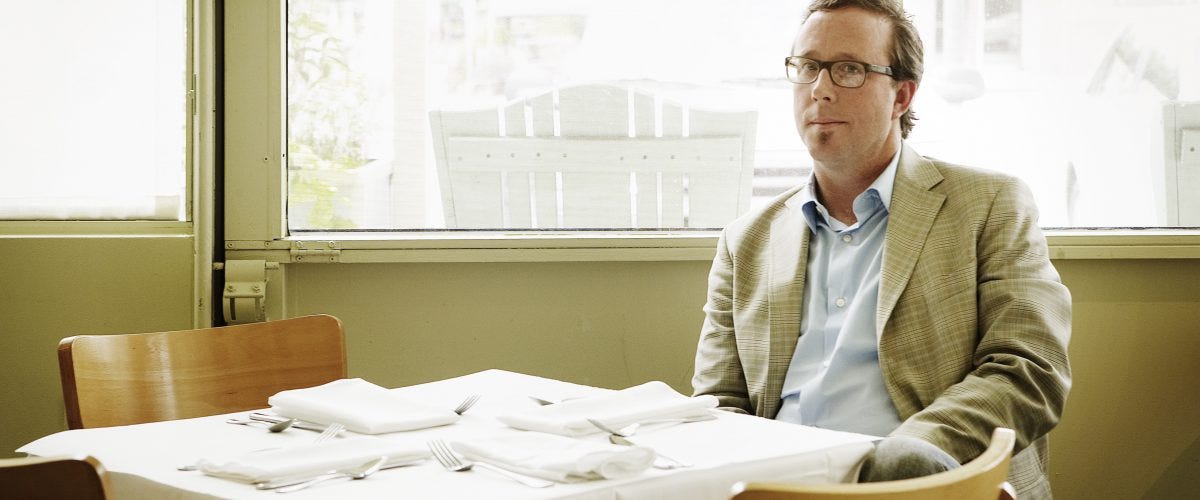Here's a very good essay that just won a James Beard Award
Issue 159: For the Oxford American, John T. Edge wrote about small-town Southern life, passing on memories, and his mother's catfish stew.

Hello! This is Nosh Box, which is — as you’ve likely already discovered — a lunchtime-ish food newsletter.
Read yesterday’s dispatch: Find out how Covid-19 has impacted food production in your county
And if I could ask a quick favor: Are you reading this and enjoy Nosh Box? Well shucks, I really appreciate it! Please share this newsletter with your friends, family, farmers, food fellows and foes (why not? I may be biased but I think subjecting them to a daily food/systems update is a GREAT prank) far and wide:
Thanks, friends! Alright, onto today’s good stuff.
The James Beard Foundation’s Media Awards were announced yesterday! It’s a fun time not only to celebrate good food writing, but also to go back and read stories I’ve loved or that I missed on the first go-round. This year’s winner of the M.F.K. Fisher Distinguished Writing Award, as I discovered, fell in the latter category.
The winning essay, “My Mother’s Catfish Stew,” is by John T. Edge, the director of the Southern Foodways Alliance. I think it exemplifies why the M.F.K. Fisher Distinguished Writing category is one of my favorites, because the award celebrates just really good writing about anything food or foodways. And maybe I just listen to too much of the SFA’s Gravy podcast, which Edge hosts, but I swore I could hear his Southern drawl reading the essay aloud in my mind.

(this is writer John T. Edge; photo courtesy of his personal website)
For the Oxford American, Edge writes in a somber, elegiac way about the tragedies that shaped not only his childhood but also his mother’s mental health — and his coming to realize, only much later, that that was the case. In worrying he’s excised his mother’s memory from his son’s life, he reflects on how he’s been honoring her all along with a catfish stew recipe:
Gently, patiently, Blair reminded me that, although she has adapted that recipe, using a more modern one from Scott Peacock and Edna Lewis, the reason we serve that catfish stew at every third dinner party is that we made a decision a while back, during another time of introspection and doubt, to remember my mother in that way. What Blair didn’t have to say is what I already knew: My written voice, my visual style, my want to step into the spotlight, were born of her deferred hopes.
My mother would have loved the stew Blair now makes. And she would have loved the life Blair and Jess and I have made together, in which our friends write books and play music and make art, and often gather in our home to talk about that work and mark those achievements. Our life is rooted in the small town we claim, but it is not limited by our small town’s geographical and social contours. If I try hard I can picture my mother at our table, spooning into a bowl of catfish stew, talking about the promise of the wide world beyond the South Carolina small town that birthed her and the Georgia woods that entrapped us.
The full essay is linked here.
Plus, Brett Martin’s GQ profile of chef Tunde Wey won, which is cool because Wey’s work itself is cool — and also because Wey had a fascinating Q&A with Helen Rosner over at The New Yorker recently, before the story won. The interview was primarily about the restaurant industry (“Let it die,” Wey likes to say) but he talked about the nature of media attention, too. He said he’s friendly with Brett Martin (who wrote about him) and would be happy if the story won for that reason, but had interesting insights on the experience of being written about.
A selection of Wey’s comments from the New Yorker Q&A:
It’s a mindfuck, on a couple levels. A friend pointed out that I myself write about my own life—and now somebody else is being recognized for writing about my life, even though I already do this. Her example—and I thought it was great—was that it’s like somebody going to [the legendary New Orleans chef] Leah Chase’s kitchen, watching her make fried chicken, working with her, taking her recipe, tweaking it, and then winning an award for that recipe. I was like, Shit, that is incredible.
I do want to say, about the profile, that I’m ambivalent about media, but I also crave it. I need it, because my work is not tangible, and it’s small in scope. So I need these media milestones as reminders of my work, to myself and to others.
My work is no more or less worthy because it’s written about, but I’m so glad it is, because otherwise I would be more disposable than I am.

I am angry about the murder of George Floyd by police in Minneapolis, so I followed the lead of some community members in donating to the Minnesota Freedom Fund. They pay cash bail and immigrant bonds for incarcerated people. Floyd’s family has also started a memorial fund. Please donate if you’re financially able to.




